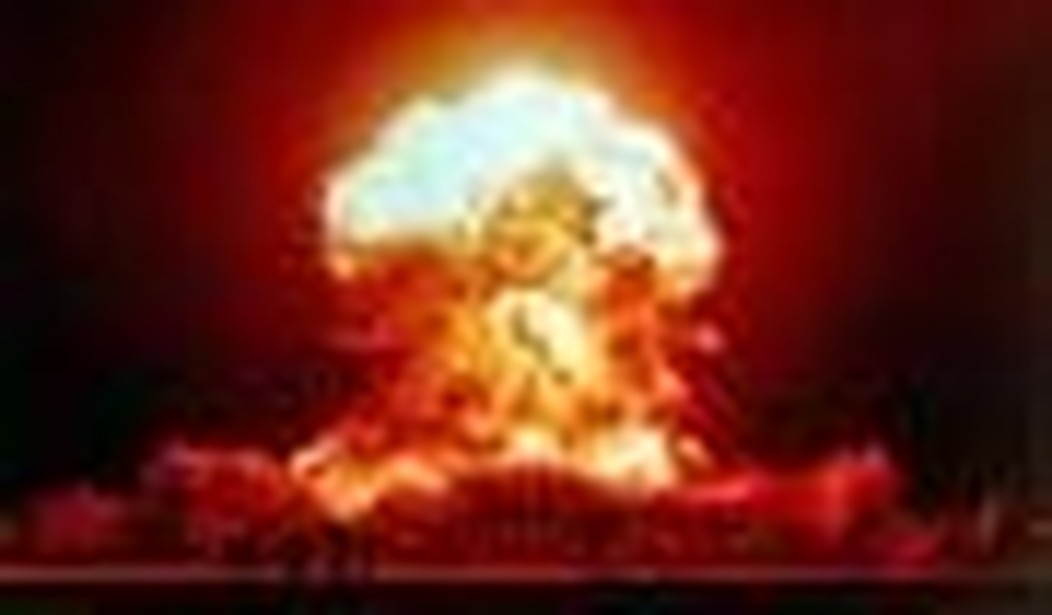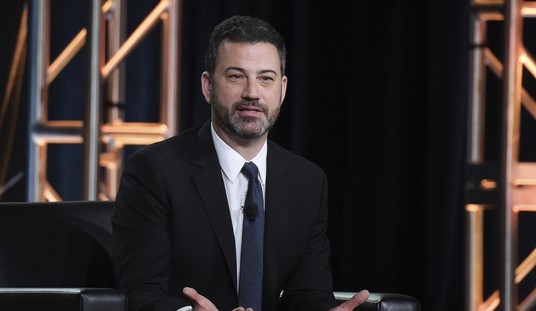Sultan Bashiruddin Mahmood, an architect of Pakistan’s nuclear weapons program, declared that Pakistan’s nuclear bombs are “the property of a whole ummah [worldwide Muslim community],” so that some Muslim nations or groups could use them on infidels to bring about “the end of days” and lead the way for Islam to be the supreme religious force in the world. A.Q. Khan, the former head of Pakistan’s nuclear program, proliferated nuclear bomb-making technology exclusively to Islamic states such as Libya or Iran with just one exception: he transferred this technology to North Korea in exchange for its missile technology for Pakistan.
While Pakistan’s dismal economy survives on handouts from donor nations, it has the fastest-growing nuclear arms buildup in the world. Both the Pakistani state and groups based in it have continued to sponsor the Taliban in Afghanistan and assorted jihadist entities against India. Pakistan’s broad-based commitment to jihad (a religious war directed at conquering land and people for Islam) is reflected in its school syllabus.
The motto of the Pakistani army is “faith, piety, and holy war in the path of Allah.” That the 9/11 attacks on America originated from Pakistan-controlled, Taliban-ruled Afghanistan shouldn’t be a surprise at all.
The main nation widely thought to be behind the bankrolling of Pakistan’s nuclear buildup is jihadist spearhead Saudi Arabia, from where most hijackers who carried out the 9/11 attacks originated. Thanks to its likely funding of the Pakistani nuclear program, Saudi Arabia may already have nukes. Saudi Arabia is deeply committed to jihad; inspired by the Koran, here is the call to impose jihad on unbelievers sponsored by the Saudi government:
The Muslims are required to raise the banner of jihad in order to make the word of Allah supreme in this world, to remove all forms of injustice and oppression, and to defend the Muslims. If Muslims do not take up the sword, the evil tyrants of this earth will be able to continue oppressing the weak and [the] helpless.
Government-linked and -funded Saudi charities have been at the forefront of indoctrinating and sponsoring jihad all over the world. The perception of injustice and oppression is deliberately created as part of the indoctrination process, in order to create bogus justifications for waging jihad. The U.S. Treasury Department recently banned one such charity that, not surprisingly, operated out of the Saudi embassy in many nations. The U.S. is now belatedly recognizing that even if the opium production in Afghanistan that funds the Taliban insurgency is curtailed, Persian Gulf money will continue to fuel the Taliban.
Iranian President Ahmadinejad, whose Islamic nation is well on its way to acquiring nuclear weapons status, has voiced his nation’s apocalyptic intent by declaring that Israel must be “wiped off the map.”
The Islam-based ideologies dictating the outlook of nations such as Pakistan, Saudi Arabia, and Iran are invariably gearing them toward the next generation of terror attacks that could very well involve nuclear weapons. Hence, firstly, any nuanced analysis of weapons of mass destruction (WMD) proliferation prevention and beyond has to comprehensively counter these ideologies. Secondly, it is critical that the stated American WMD doctrine should act as a strong deterrent.
Disturbingly, thus far, America has failed to address both of these issues meaningfully or adequately. In my view, this is primarily due to our relative unfamiliarity with the dominant jihadist inclinations of the Islamic doctrines themselves.
The Koran, the primary Islamic doctrine, inspires and legitimizes acts of terror — if jihadists themselves are to be believed. The recent discovery of the Yemeni Koran, dating back to within two centuries of the founding of Islam, has provided a possibility of decisively negating the legitimacy of the Koran as consisting of God’s “revelations.” Studies show this version of the Koran being different from the only Koran now in circulation, thus countering the claims of the believers that the Koran represents the perfect, timeless, and unchanging word of God, and instead making a case for viewing it as an evolving text developed by humans.
The current nuclear doctrine announced in 2002 with regard to WMD strikes on the United States is based upon a “strong declaratory policy” to discourage anyone from using nukes or other WMD on the U.S. It also “requires an enhanced ability to determine the source of an attack quickly and effectively.” Furthermore, the document says, “The United States will continue to make clear that it reserves the right to respond with overwhelming force — including through resort to all of our options [that includes retaliatory nuclear strikes] — to the use of [WMD] against the United States, our forces abroad, and friends and allies.” While the 2002 doctrine calls for retaliation only on the state actors who may have enabled the use of WMD, the latest revision, announced in 2008, expands it a bit further and says “those states, organizations, or individuals who might enable or facilitate terrorists in obtaining or using weapons of mass destruction.”
Analyzing nuclear material left over after the blast to look for “signatures” and determining the origin of the nuclear bomb-making material have become increasingly feasible. But on the downside, this nuclear forensics is not only time-consuming but unreliable in a world in which nuclear technology has proliferated — and due to the lack of cooperation and transparency on the part of the states that sponsor terror.
Many terror-sponsoring states may have been convinced, for the right reasons, that they are unlikely to be implicated and held accountable decisively when there is seemingly lack of clear-cut evidence linking them to terrorist groups involved in the WMD attacks. In other words, the present language in the American WMD doctrine constitutes a deficiency — and gives jihadists an edge by tempting them to think that they have an escape clause from extreme punishment for the WMD attacks. Thus the doctrine in its present form puts America and its allies under a significant risk in the form of the looming threat of a nuclear 9/11.
Indeed, it is pertinent to note that similar reasons of plausible deniability have been used by Islamic states such as Pakistan to fund and sponsor terror groups, including the Taliban, al-Qaeda, and India-specific Lashkar-e-Taiba.
A way to overcome this deficiency lies in acknowledging that the root cause of the WMD attacks lies in the longstanding pattern of hateful indoctrination and funding of the communities from which WMD attacks may originate. In a 2005 speech, the U.S. Treasury secretary made this observation about the Saudi export of terrorist ideologies: “In addition to the export of terrorist funds, we are extremely concerned about the export of terrorist ideologies. These teachings are as indispensable to terrorists as money, and possibly even more dangerous.” For instance, the funding and indoctrination of Muslim communities throughout the world carried out by Saudi Arabia, Pakistan, and Iran have given rise to the likes of al-Qaeda, the Taliban, Hezbollah, and many other terror entities. The point couldn’t be overstated: without this root cause, the desire for and ability to wage jihad and, hence, the intent to acquire and use WMD are very unlikely.
In the above context, a nuanced and strong declaratory policy has to go beyond merely singling out those who may have either enabled or facilitated terrorists into obtaining or using the WMD, but also declare the intent to retaliate disproportionately and devastatingly against those states, societies, or groups that have been engaged in the hateful indoctrinating process noted in the previous paragraph. Such a response has the best potential to create “black swan”-like trend-changing events, in order to compel these communities to evolve differently in a non-confrontational and constructive direction.
The above approach is justified on the basis that a WMD-based genocidal mass attack on innocent civilians and others by terrorist entities requires far-reaching measures of accountability, both at personal and community levels.
A revamped WMD doctrine along these lines should help reinvigorate worldwide efforts to moderate violent religion-based ideologies and address their implications. In particular, it will put the onus on nations such as Saudi Arabia to play a leadership role in rolling back the jihadist passion of anger and hatred it helped to create around the world. This could involve the distribution of material that compares the differences in the Yemeni Koran with the contemporary Koran to demonstrate that the believers should not heed the contents of the Muslim holy book that either speak ill of unbelievers or call for their conquest through jihad.
The U.S. revisit of its WMD doctrine couldn’t happen soon enough.









Join the conversation as a VIP Member